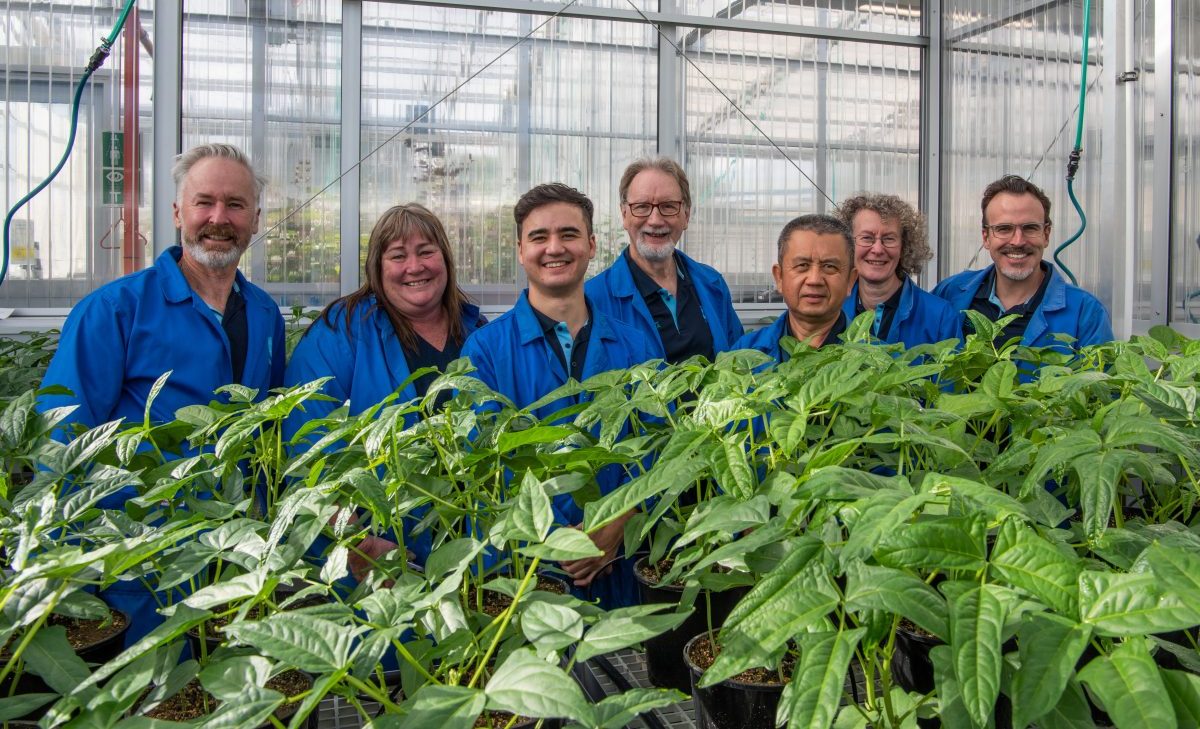
CSIRO’s Legume Engineering team Andy Moore, Jenny Gibson, Javier Atayde, TJ Higgins, Luch Hac, Lisa Molvig and Jose Barrero. Photo: CSIRO
AN INTERNATIONAL consortium of scientists has received a $34-million grant from the Bill & Melinda Gates Agricultural Innovations (Gates Ag One) fund to improve crop productivity and food security in sub-Saharan Africa and South Asia.
Agriculture researchers from Australia’s national science agency CSIRO are part of the Realizing Increased Photosynthetic Efficiency (RIPE) project.
It is an international collaboration with: the University of Illinois; the University of California, Berkeley; Lancaster University; the University of Cambridge; the University of Essex in the UK, and the US Department of Agriculture’s Agricultural Research Service.
The project aims to end hunger worldwide by improving the complex process of photosynthesis to increase crop production.
With the demand for protein set to double in places like Africa by 2050, CSIRO scientist Jose Barrero said the focus was now on improving staple food crops, including cowpea, in some of the most disadvantaged and harsh landscapes on the planet.
“Cowpea is an important vegetable food source for smallholder farmers in Africa where it is a major source of protein,” Dr Barrero said.
CSIRO scientist TJ Higgins said the goal was to develop new cowpea varieties with improved yields to help deliver global food security in light of the expected population growth in West Africa and the challenging impacts of climate change.
“Existing work by CSIRO and partners on improving outcomes for crops in Africa has already led to the development and commercial release of the world’s first genetically modified cowpea in Nigeria,” Dr Higgins said.
“This new cowpea variety is resistant to an important insect pest, the Maruca pod-borer.
“We have already seen major improvements in crop productivity in field trials conducted by the RIPE project.
“This new research as part of the RIPE project will have an additional impact on reducing hunger and rural poverty.”
RIPE Project director Steven Long said work being done by CSIRO and the RIPE team was world-leading and would have profound implications for small-scale agriculture in developing countries.
“This is where science can make a real difference to human outcomes, unlocking improvements in productivity without requiring more inputs from farmers with limited resources,” Dr Long said.
The RIPE project was started in 2012 by the Bill & Melinda Gates Foundation, the UK Foreign, Commonwealth and Development Office (FCDO), and the US Foundation for Food and Agriculture Research.
The ongoing work is now being supported by Gates Ag One, a not-for-profit subsidiary of the Gates Foundation, created to leverage global crop science to meet the needs of smallholder farmers.
Source: CSIRO

HAVE YOUR SAY